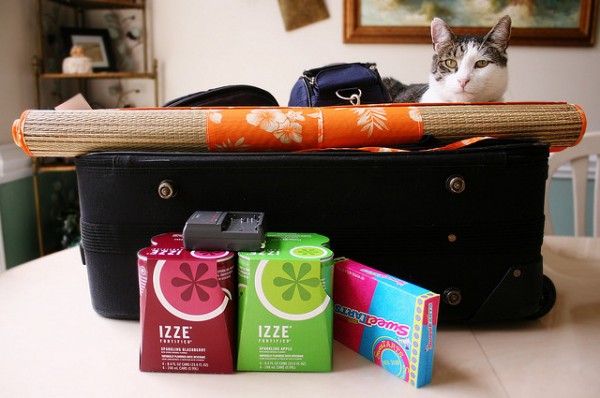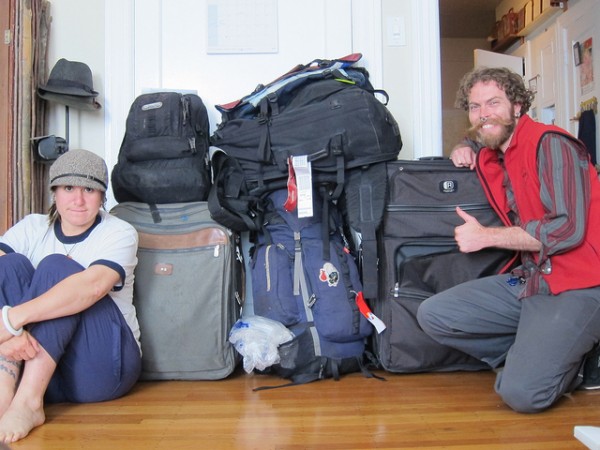 Image by Flickr user Brit
Image by Flickr user Brit
Pack what you need.
It sounds so simple right?
But how do you know what you need? Or what you might need? And how often will you need those things? And what if your plans change?
The Real Problem with “Packing What You Need”
 Image by Flickr user sandwichgirl
Image by Flickr user sandwichgirl
Packing only what you need seems like the key to packing light, but that’s the same rationale I hear from friends or fellow travelers about how they came to be laden down with 40-litre backpacks in front and back or two 2-foot high rolling suitcases:
“What on earth do you have in there?”
“Oh, you know I’m backpacking through Europe for the next three months, right? So I need clothes and shoes for hiking, going out, and visiting museums, snacks, a ton of guidebooks and reading for the train, a couple different jackets because who knows what the weather will be like, some mementos from home so I don’t get homesick, and some other things I forget about now. I know it looks like a lot, but I just packed what I needed!
To which I can’t help but reply:
“Yep, me too. I have clothes for everything from hiking to conferences and snow to the beach along with snack, a whole office, and gifts . . . in my 18-inch-high carry-on.”
Packing light is an art form, and I fear that like many crafts, it’s a dying skill.
Why We Should All Pack Light
 Image by Flickr user Kim Seng
Image by Flickr user Kim Seng
There’s between 300-400 passengers on your average flight between New York and London.
If every passenger brings a checked bag, that’s around 31,700 kg of carbon dioxide emissions per flight.
Or, with about 1.2 million passengers on this route per year, it’s 108.7 million kg of carbon dioxide emissions per year.
Over 100 million kg of emissions on one route because of baggage! Honesty, I shudder to calculate the extra carbon emissions worldwide racked up due to inefficient packing.
Why You Personally Should Pack Light
 Image by Flickr user Charles Wiriawan
Image by Flickr user Charles Wiriawan
But if the emissions are too much of a distance issue to convince you, let me make it a bit more personal. There’s a reason that rolling backpacks became all the rage a few years back. Carrying heavy bags can cause serious health problems, including:
- muscle spasms
- headaches
- numbness
- scoliosis
- disc injuries
When I don’t do a really tip top job of packing, I start to feel it in my hands, arm, neck and back before long.
Just being lazy and holding on to what seems like a few things that I don’t really need has a cascade effect. I start picking up books and brochures . . . or purchasing four scarves in one week when I’m already carrying three.
A friend who travels full-time recently confided her secret packing woe with me. Her backpack is so large that she’s constantly looking for a place to store it rather than carry it.
She just wishes she had less stuff. But she can’t bring herself to get rid of any of the things she has in her pack.
The best solution?
Pack smarter in the first place.
Okay, it won’t help her because she’s been traveling for three years, but it can help you!
In the next part of the EcoTraveller Guide on how to pack light, we’ll move from the why to the how of packing light with my three most important packing secrets.
Stay tuned!
Other articles in the How to Pack Lightly series:
2. How to Pack Light Part II: My 3 Best Packing Tips
3. How to Pack Light Part III: Modulizing without Modules


4 Comments